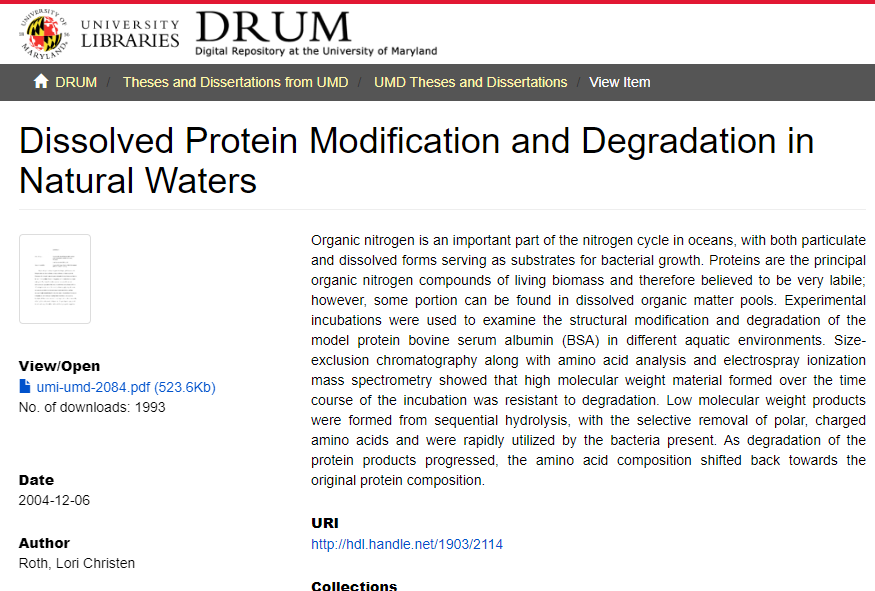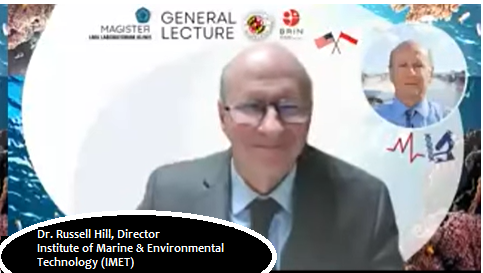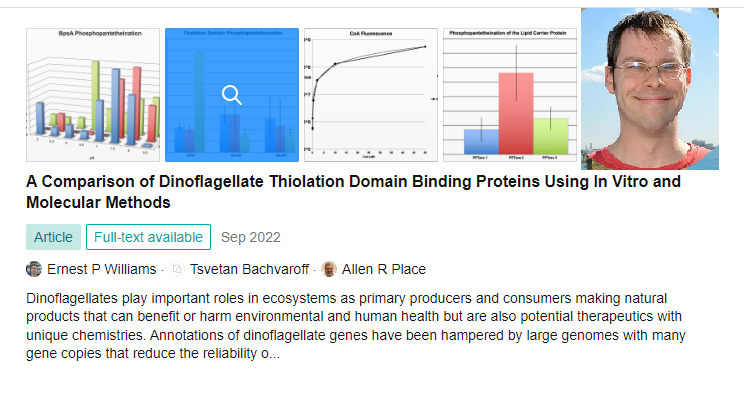MEES IN THE NEWS
NEWS ARCHIVE
CONGRATULATIONS TO OUR 2022 COLLOQUIUM AWARD WINNERS!
For the Colloquium recap, along with more info on the award winners, click here.
2022 MEES COLLOQUIUM LIGHTNING TALK WINNERS
1ST PLACE - ANNA WINDLE
Anna Windle Photo Courtesy: UMCES/HPL
Optical Classification of Water Quality in the Chesapeake Bay
ABSTRACT
Satellite remote sensing contributes to a comprehensive understanding of water quality by enabling a quantification of remote sensing reflectance (Rrs) which describes the color and brightness of water. Rrs is governed by light interactions with optically-active constituents, including phytoplankton, dissolved organic matter, and inorganic suspended sediments. This study aims to extend the knowledge of water quality trends in Chesapeake Bay through the lens of a satellite based optical classification. This statistical method identifies dominant Rrs spectra referred to as optical water types (OWTs) which were determined and mapped using 300 m multispectral satellite data. In situ water quality data were paired in space and time to assess how quality parameters are constrained within a given OWT. Results are expected to aid in the interpretation of water quality trends, assist in remote sending algorithm selection, and potentially delineate regions not meeting management goals.
2nd Place - Miranda Judd
Oxygen Production and Consumption in Dinoflagellates
3rd Place - Katherine Stahl
Investigating Vegetation Dieback in ditched Coastla Marshes and Restoration Potential
2022 MEES COLLOQUIUM POSTER WINNERS
1ST PLACE - ANNA HILDEBRAND
Anna Hildebrand
Anaerobic Oxidation of Methane (AOM) as a mechanism for the production of dissolved organic carbon: From Estuaries to seeps
ABSTRACT
Marine DOC is one of the largest reactive carbon (C) reservoirs (662 Gt C) on Earth (Hansell & Carlson, 2002) and plays an important role in the oceans to modulate CO2. While our understanding of DOC has greatly improved through discoveries such as the microbial carbon pump (Jiao, et al., 2010), our knowledge regarding sources of DOC is limited (Burdige & Komada, 2015). This project will test the hypothesis that methane-derived carbon is converted to dissolved organic matter during AOM coupled to sulfate reduction in anoxic marine sediments, and potentially coupled to iron reduction in estuarine sediments. Incubations with 13C-enriched methane will be conducted on sediment from the Chesapeake Bay and Southern Hydrate Ridge and the resultant CO2 and DOC pools will be measured. This work will clarify the role of seeps in contributing methane-derived, fossil-aged carbon to deep ocean DOC as well as fill in knowledge gaps in our understanding of DOC sources in the Chesapeake Bay.
2nd Place - Jens Wira
How do Gambierdiscus Swim? Investigating the Swimming Behavior of the Ciguatera Poisoning Causing Benthic Dinoflagellate
3rd Place - Pengzheng Yong
Ectopic Expression of Myomaker and Myomixer Induces Non-Fusogenic slow muscle fusion
2022 MEES Colloquium
November 18, 2022 - The 2022 MEES Colloquium was held at the Institute of Marine & Environmental Technology (IMET) co-hosted by the University of Maryland, Baltimore and the University of Maryland, Baltimore County. There were two panels (main & career) panels, as well as a poster session & student lightning talks. This Colloquium was the first in person colloquium in several years. However, almost 200 attended and the energy and excitement were palpable. In order to maximize interaction the MEES-GSO organized table assignments during the meal break which really fostered collaboration and conversation. For more information on the Colloquium, click here.
2022 NOAA CPO INTERN - GILLEN CURRAN
Gillen Curran Photo Courtesy: UMES
November 3, 2022 - Congratulations to Gillen Curran on her recent NOAA CPO Internship! Gillen Curran (‘22, E&O), advised by Dr. Yan Waguespack, is a first year MEES Master’s student at the University of Maryland, Eastern Shore (UMES). Gillen was recently hired by the Cooperative Institute for Satellite Earth System Studies (CISESS) for an internship slated to begin December 12th, 2022. Gillen’s primary tasks include assisting in providing weekly “hot items”; comprehensive summaries on relevant scientific publications and ongoing NOAA research projects. The purpose is to publish this information to NOAA as a whole and partner institutions in an effort to update large audiences on weekly scientific progress and developments. Prior to entering the MEES Program, Gillen was awarded the prestigious Beckman Scholarship during her first year at Villanova as an undergraduate, which funded her honors thesis research on understanding heavy metals in estuarine food webs. Gillen Curran is from Wilmington, Delaware, and her current research interest is in seaweed. Gillen hopes to not only make key connections with NOAA scientists and mentors but also explore other research opportunities. For more information, click here. The MEES program is very proud of you! Congratulations, Gillen!
CONGRATULATIONS TO DR. AMY SAPKOTA — 2022 MPOWER PROFESSOR
Dr. Amy Sapkota Photo Courtesy: UMCP
November 7, 2022 - Congratulations to our very own Dr. Amy Sapkota who was one of only three University of Maryland, College Park faculty to be appointed as an MPower Professor by the University of Maryland Strategis Partnership: MPowering the State in an announcement on Friday! Dr. Sapkota (UMCP) is a Professor of environmental health science in the Maryland Institute for Applied Environmental Health at the School of Public Health and is also a long-time MEES Faculty member who has advised and mentored many MEES graduate students. Dr. Sapkota joins a group of only six faculty (two from the University of Maryland, College Park faculty and three from the University of Maryland, Baltimore (UMB), respectively) as MPower Professors. In Maryland Today’s recent article regarding the announcement, the professorship “recognizes, incentivizes and fosters collaborations between faculty who are working together [across disciplines] on the most pressing issues of our time.” Dr. Sapkota's research focuses on ensuring the safety of agricultural and municipal water reuse and understanding the impact of environmental microbial exposures on the human microbiome. She has published over 90 journal articles and has secured or helped to secure more than $44 million in external funds. We at the MEES Graduate Program are so very proud of our faculty whose exemplary skills, leadership, creativity, and mentoring have been recognized! According to the announcement, each professor will receive $150,000, allocated over three years, to apply to their salary or to support supplemental research activities. Dr. Sapkota also serves as Director of both the CONSERVE Center of Excellence and the UMD Global Stewards Research Traineeship program funded by the National Science Foundation. For more information on Dr. Sapkota and her research, click here.
MODERN METHODS FOR SUSTAINABILITY in MARYLAND’s OYSTER COMMUNITY:
A JOINT MULTI-DISCIPLINARY COLLABORATION
Photo Courtesy: UMCP/John T. Consoli
October 19, 2022 - This month’s Maryland Today magazine features an article on the University of Maryland’s joint project on gathering data for sustainability and growth in the Chesapeake Bay’s oyster population. This unique multi-disciplinary and multi-institutional research team (three USM institutions and six U.S. universities & labs) represents a broad swath of disciplines (bioengineering, engineering, ecology, computer science, environmental science, aquaculture, fisheries & robotics), and features two members from our very own MEES community: MEES faculty member, Professor Matthew Gray (UMCES), the project’s co-leader, and his student Alan Williams (Ph.D., ECOL SYS). Led by overall Project Leader Professor Miao Yu (UMCP), these researchers aim to provide modern methods to augment oyster harvesting & cultivating traditions as well as develop technologies that have multiple applications in other parts of the seafood industry. We are proud of all of our brilliant learners and thinkers, who are not only passionate about research, teaching, and discovery, but also about truly enacting meaningful and impactful change both locally and globally. For more information, click here.
NOVEMBER 2022 - NATIONAL CANCER AWARENESS MONTH
Monthly Spotlight: National Cancer Awareness Month (November 2022) - Ernest Williams (EMST, ‘22) earned his MEES Ph.D. and graduated from the MEES Program in Summer 2022. Advised by Dr. Allen Place, Ernest, a father of three boys, was awarded the Dean’s Fellowship (2018) as well as presented at the prestigious Gordon Research Seminar on Mycotoxins and Phycotoxins in 2017 in Easton, MA. Ernest’s dissertation research, which focused on extracting natural products from marine dinoflagellates in an effort to synthesize treatment options for illnesses like cancer, is now published in Marine Drugs’ September 2022 journal issue, entitled “A Comparison of Dinoflagellate Thiolation Domain Binding Proteins Using In Vitro and Molecular Methods”. His dissertation entitled, “Insights into dinoflagellate natural product synthesis via catalytic domain interactions” can be found here.
Faculty Focus: Dr. Russell Hill is a marine microbiology Professor and Director of the Institute of Marine & Environmental Technology (IMET) in Baltimore. Dr. Hill, a longtime MEES faculty member, has received numerous academic awards, including the University System of Maryland Board of Regents Faculty Award for Excellence in Mentoring (2015, 2016) and was elected to Fellowship in the American Academy of Microbiology. Dr. Hill’s research focus is the investigation of symbiotic bacteria associated with marine invertebrates, in particular, sponges from which many important compounds including pharmaceutical potential to treat many types of cancer have been discovered. Some of these compounds are produced, not by the sponges themselves, but by bacteria associated with the sponges. Check out Dr. Hill’s latest February 2022 presentation at the S2 Teknologi Laboratorium Medis (Indonesian University lecture) entitled: “Drugs From The Sea: Genetic Engineering of Marine Bacteria for Health Applications”. Dr. Hill was also part of a joint paper in Science Direct’s Bioorganic & Medicinal Chemistry Letters entitled “Antiproliferative and antiplasmodial compounds from selected Streptomyces species” where bacterial compounds from marine sponges collected from the Florida Keys were tested against ovarian cancer lines. For more on the Hill lab, click here.
MEES Research Corner: Lori Roth (‘04, ENVSC ) earned her Master’s degree in MEES from the University of Maryland Center for Environmental Sciences (UMCES). After graduating, she went on to work at the Cancer Research Institute in Honolulu, Hawaii. Lori's project there involved the impacts of micronutrients on the prevention of cancer. She also has taught chemistry, oceanography, and environmental sciences at Honolulu Community College. Under her advisor, Dr. H. Rodger Harvey (UMCES), her Master’s thesis was entitled: “Dissolved Protein Modification and Degradation in Natural Waters”.







